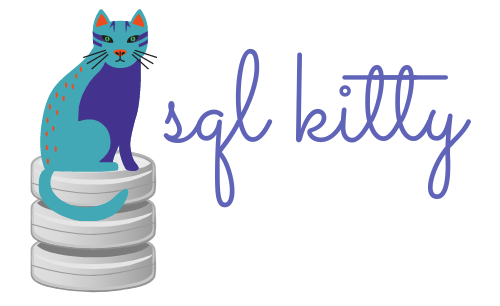
There are so many choices and so little time. How do you go about deciding what to learn? I have to delicately balance everything I think I want to learn with what is a reasonable amount of things to learn and what will benefit my career in the long term. I decided to do this post because I’ve been at my new job for over a year.
A lot of times, I feel like my life works like this:
Somehow, I try to make it look more like this:
Why Decide?
This reminds me of a topic I read about recently. The difference between overload and overwhelm. The author said overload is doing too much, and overwhelm is thinking too much. With all the tech choices out there and all the things you could possibly learn, it can get overloading and overwhelming. I list 4-5 things MAX that I will focus on learning. Even that can feel a bit overloading and/or overwhelming sometimes. I know that if my list starts to expand past learning that many things, then I will never feel very comfortable. My list of 4-5 items tends to be very high level, and currently it’s:
- Terraform – expand into advanced skills – including sorting out how to create Logic apps to report on Azure SQL audit data
- Azure DevOps – learn how to create a pipeline to deploy GitHub repo with Flyway scripts
- SQL Elastic Pools – deep dive into more settings/configurations related to this
- Bicep – learn basic skills as a possible alternative to Terraform
- Databricks – expand into advanced skills to support the DW initiative at work
Also, there tend to be some smaller things that either get thrown over the wall at me, or I want to learn but don’t take quite as much time as these bigger topics. Those get into blog posts quickly, so I can document that knowledge for myself and others.
Generally speaking, these are all directly related to work tasks, but not necessarily because they were assigned to me. In fact, my job is to find ways to improve without someone telling me, “Hey, do this now!” That’s really what differentiates a senior from a junior – that initiative and ability to go out and get the knowledge to effect change.
Things flow in and out of this list as I get more comfortable with each one. Sometimes, I discover I don’t really want or need to learn something. For example, Bicep is for exploring the differences between Terraform and Bicep and see if there are good use cases for making the switch. That might drop off before I get too far.
How to Decide?
You can learn so many things inside and outside of database tech that it may be hard to decide on the “right” path forward. Here are some thoughts to help guide you:
- Trend Talk: So, what’s buzzing in the database sphere lately? Have you heard about the rise of cloud databases, the latest in NoSQL innovations, or perhaps the intriguing world of Big Data platforms? Keeping your finger on the pulse of industry trends can give you some valuable clues about where the action is and what skills are in high demand.
- Passion Check: What gets you fired up about databases? Are you a data analysis wizard, a database design aficionado, or maybe a performance optimization guru? Think about what really sparks your interest and aligns with your career goals. Learning is much more fun when you’re diving into topics that you’re genuinely passionate about.
- Self-Assessment Time: Let’s take a moment to reflect on your current skill set. What are you rock-solid at, and where could you use a bit of a boost? Maybe you’re a whiz with SQL, but you could improve your Python skills. Or perhaps you’re a pro at managing databases but could use some help with your communication or project management skills. It’s all about identifying those areas where you have room to grow.
- Reach Out and Connect: Networking isn’t just for job hunting—it’s also a fantastic way to gather insights and advice from your peers and mentors. Strike up a conversation with fellow database enthusiasts, join online forums, attend industry events, and soak up as much knowledge as you can from those who’ve been there and done that.
- Stay Flexible: Flexibility is key in this ever-changing tech landscape. Stay nimble and open-minded, and be ready to pivot your learning path as needed. You might stumble upon a new technology or methodology that completely changes your game.
- Goal Setting: Time to set some goals! Break down those big, lofty aspirations into bite-sized chunks. What specific skills do you want to master, and by when? Setting clear objectives will help you stay focused and motivated as you embark on your learning journey.
- Make Learning a Priority: Last but not least, make learning a priority. Set aside dedicated time for your professional development, whether it’s through online courses, tutorials, webinars, or good old-fashioned hands-on experimentation. And don’t forget to keep that curiosity alive by exploring new ideas and staying hungry for knowledge.
There is so much abundance in the tech world. I never feel like there is much of any scarcity. I know we all feel that pressure of “how do I stay ahead or stay afloat in the tech world?” and it can feel like there is scarcity, what with tech layoffs and tightening budgets, but there is also a lot of abundance, and you can help yourself by learning new skills. But remember not to overload or overwhelm yourself, running around like a squirrel trying to learn everything you possibly can and burning the candle at both ends. That won’t help you in your quest to feel comfortable and successful.
Also, I wonder if we feel too boxed in, like how can we innovate with all these restrictions on our time or tech, but creativity works well with at least some boundaries on it. I feel like we can be creative in anything we do; it’s not just relegated to the artsy types. Try to find ways to mix your creativity into whatever box you feel like you are in. You may find that you aren’t in that much of a box anyway, and you have more freedom to decide than you think.
Write Your Own Blog To Expand Your Knowledge
I was going to do a whole post on why you can and should start a blog, but I thought I could just roll it up here. I love sharing my knowledge with others; it helps solidify everything I learn. My blog topics are just whatever I’m working on. It doesn’t have to be a special series or a topic no one has discussed before. Just blog on whatever you do. Plus, if I just blow through a bunch of learning and never document anything, it’s much less likely to stick. Here are some good reasons for blogging:
- Avoiding Deja Vu All Over Again: How often have I thought, ooh, I should do that, or how do I do that? Yeah, it’s already on my blog. My blog is a great reference for myself!
- Sharing Your Wisdom: Have you ever had those “aha” moments while working on a tech project? Writing your own blog lets you share those lightbulb moments with others. It’s like being the wise sage passing down knowledge to the next generation of tech enthusiasts.
- Expressing Your Authentic Self: Think of your blog as your own little corner of the internet. It’s where you get to showcase your unique perspective, skills, and personality. Over time, it becomes your digital playground where you can truly be yourself and let your creativity shine.
- Making Friends (and Connections): Blogging isn’t just about putting your thoughts out there—it’s also about building a community. You’ll connect with fellow techies, exchange ideas, and maybe even find your next collaborator or mentor. It’s like joining a cool club where everyone speaks your language.
- Boosting Your Career: Picture this: you’re in a job interview, and the interviewer Googles your name. What do they find? A well-maintained tech blog filled with insightful posts showcasing your expertise and passion. Suddenly, you’re not just another candidate but a standout superstar.
- Learning While Teaching: They say the best way to learn something is to teach it. Blogging forces you to break down complex topics into bite-sized pieces that anyone can understand. Plus, the feedback and questions from your readers will keep you on your toes and constantly learning new things.
- Getting That Warm Fuzzy Feeling: At the end of the day, blogging is about more than just metrics and monetization. It’s about the satisfaction of creating something meaningful, helping others, and leaving your mark on the world (wide web). There’s nothing quite like the feeling of seeing your words resonate with someone halfway across the globe.
Anyone can blog these days. It’s super easy to get started. I have another post about my blogging process to help you get started. If you feel like no one will read it or you won’t say the right thing, remember it’s all about what you are experiencing and the perspective you can bring to the world. There are plenty of people out there that will benefit from your knowledge!
What I Learned in the Last Year
Writing this blog post made me realize I learned a ton in the last year. I always think about how much more I have to learn, but reflecting on how far I’ve come is so good. I started a new job as a database engineer last year, moving from DBA into a fully cloud-based engineer role with DBA mixed into it. It was challenging but also rewarding. Here are all the skills I learned or expanded on substantially in the last year:
- Terraform
- Azure SQL dbs, along with auditing and alerting on them
- Azure Runbooks
- Flyway
- Kusto
- Azure Data Studio
- Moving toward making this my default GUI
- Using more extensions
- Azure Workbooks
- To try to replicate the Workspace summary that is being deprecated in log analytics
- Data warehousing using ADF and Databricks
- Temporal Tables
- And all the things that go with modifying data inside of them
- Column Masking
- CI/CD processes using GitHub and Azure DevOps
- Automating Ola scripts in Azure SQL dbs
Every day is a winding road, so who knows what I will be learning a year from now, but in the short term, I try to stick to my list to avoid overload and overwhelm.
